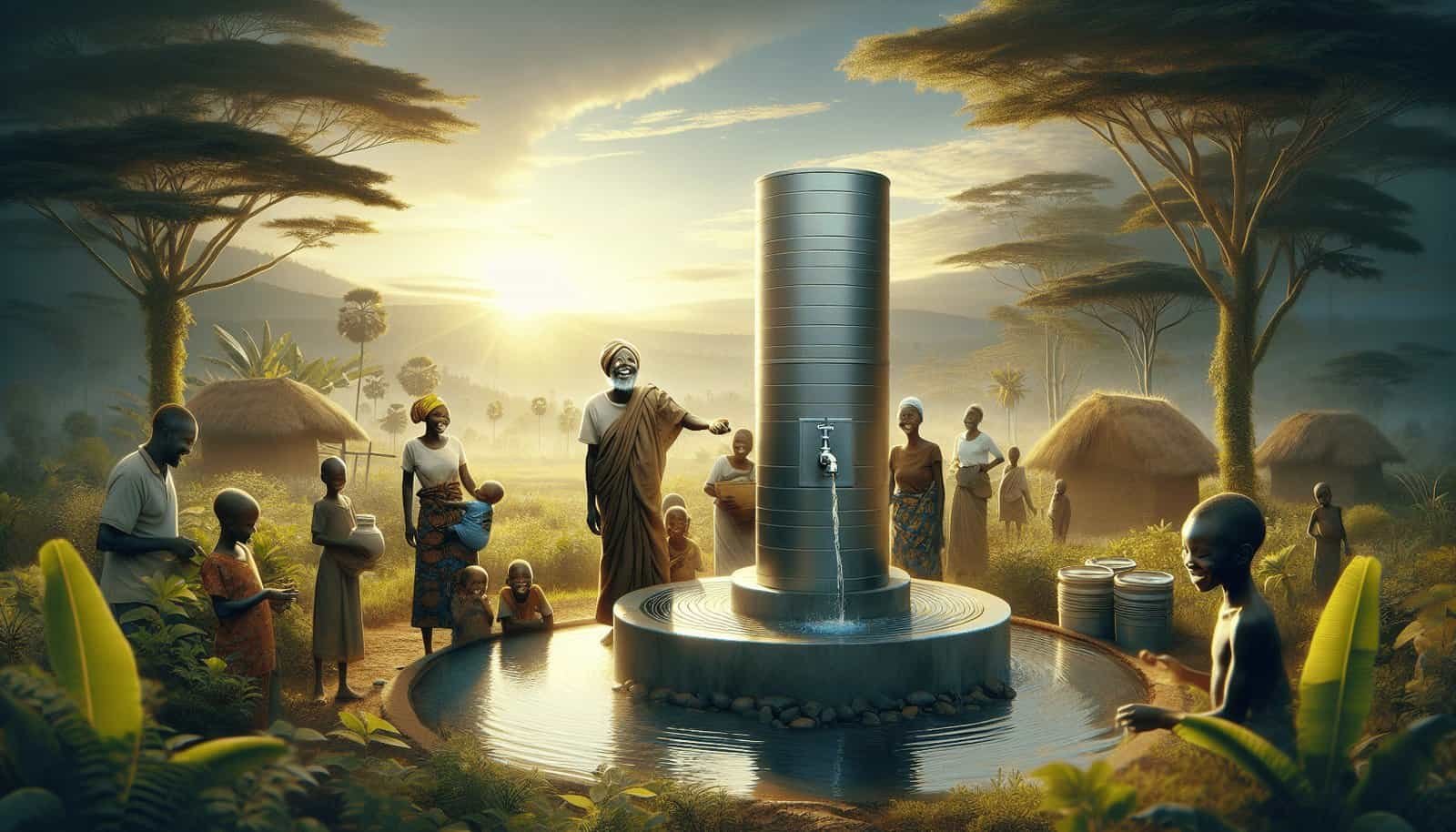How often do we pause to think about the significance of a simple glass of water? In many parts of the world, this life-sustaining resource is a precious commodity, and efforts are underway to ensure its accessibility to everyone. One such initiative involves a Catholic man with a deep commitment to building more water wells in Uganda. This endeavor is a beacon of hope for numerous communities struggling with water scarcity.

Understanding the Water Crisis in Uganda
The water crisis in Uganda is a pressing issue that affects millions. Despite being endowed with natural resources, geographical and infrastructural challenges limit access to clean water. Vulnerable populations, particularly in rural areas, face the daily struggle of securing safe water for drinking and basic hygiene.
Uganda’s Water Landscape
Uganda boasts a variety of lakes and rivers, yet infrastructure development has not kept pace with the needs of its growing population. Many villages rely on unsafe water sources that are prone to contamination and disease. This is particularly troubling in dry seasons when water becomes even scarcer, forcing individuals to travel long distances in search of this essential resource.
Health Implications of Water Scarcity
The lack of clean water has dire consequences for health. Waterborne diseases such as cholera and typhoid are prevalent, leading to high rates of illness and mortality, especially among children. The absence of adequate sanitation further exacerbates these health challenges, creating a cycle of illness and poverty.
The Role of Water Wells
In response to these challenges, water wells stand out as a vital solution. They provide a reliable source of water that is often safer and more accessible than natural sources such as rivers and lakes. The construction of water wells can transform a community, fostering improved health, economic growth, and education.
Advantages of Water Wells
Drilling a well taps into underground water reserves, which are less susceptible to contamination than surface water. Wells can significantly reduce the time and effort required to collect water, allowing individuals to focus on other important aspects of their lives, like education and economic development.
Sustainability and Community Empowerment
Sustainable development depends heavily on local empowerment. By involving community members in the well construction and maintenance process, projects like these build local capacities and ensure long-term functionality. Empowering communities through training and education helps establish ownership and accountability, creating a self-sustaining resource.

The Catholic Man’s Vision
This specific initiative stems from a deep belief in making a positive difference. Motivated by his faith and a desire to serve, the Catholic man embarked on a mission to build more water wells in Uganda. His vision is driven by the transformative power of accessible clean water.
Motivation and Mission
With a firm belief in the dignity of every person and the right to essential needs, his mission aligns with the broader Catholic values of service and charity. Through partnership with local organizations and communities, he aims to create tangible and lasting change.
Challenges and Determination
Undertaking a project of this magnitude is not without its challenges. Logistical hurdles, financial constraints, and geographical obstacles must be overcome. However, his unwavering determination and commitment to the cause provide the resolve needed to push forward and realize this impactful vision.

Community Impact
The impact of water wells on communities cannot be overstated. From health benefits to economic development, each well serves as a catalyst for positive change.
Healthcare Improvements
Access to clean water drastically reduces disease prevalence, leading to healthier communities. This directly translates to fewer medical expenses and a healthier population capable of participating in educational and economic activities.
Economic Prosperity
Communities with nearby water sources see improvements in productivity. Time previously spent fetching water can be redirected toward farming, entrepreneurship, and education. This means broader economic benefits, both at the individual and community levels.
Educational Opportunities
Water scarcity often forces children, especially girls, to spend hours collecting water, leaving little time for schooling. Wells liberate these children from this responsibility, allowing them to focus on their education, thus improving literacy and future prospects.

The Path Ahead
As the initiative to build more water wells in Uganda progresses, there are plans for greater expansion and collaboration.
Collaborative Efforts
Partnerships with NGOs, local governments, and international donors are essential for the initiative’s success. Collaborative efforts maximize resources, share expertise, and broaden the reach of clean water projects.
Ensuring Sustainability
Ensuring the sustainability of these wells involves continuous monitoring and maintenance. Training local community members to oversee the upkeep of wells ensures long-term success and autonomy.
Inspiring Global Action
This inspiring initiative highlights the impact of grassroots efforts in tackling global challenges. It serves as a beacon of hope, encouraging others to engage in similar actions to address water scarcity and improve lives worldwide.

Conclusion
In conclusion, the journey to build more water wells in Uganda is a testament to the power of faith, determination, and community collaboration. Through these wells, not only are communities provided with an essential resource, but lives are transformed, offering a brighter, healthier future. Each well stands as a reminder of the profound impact that accessible clean water can have, providing hope and opportunity for generations to come.
